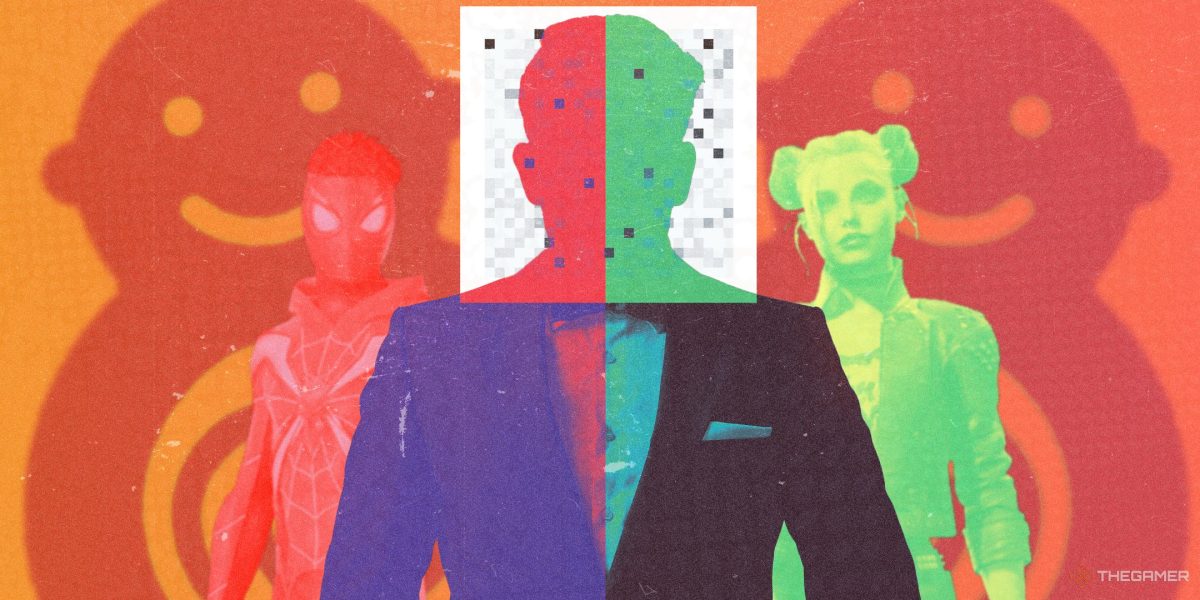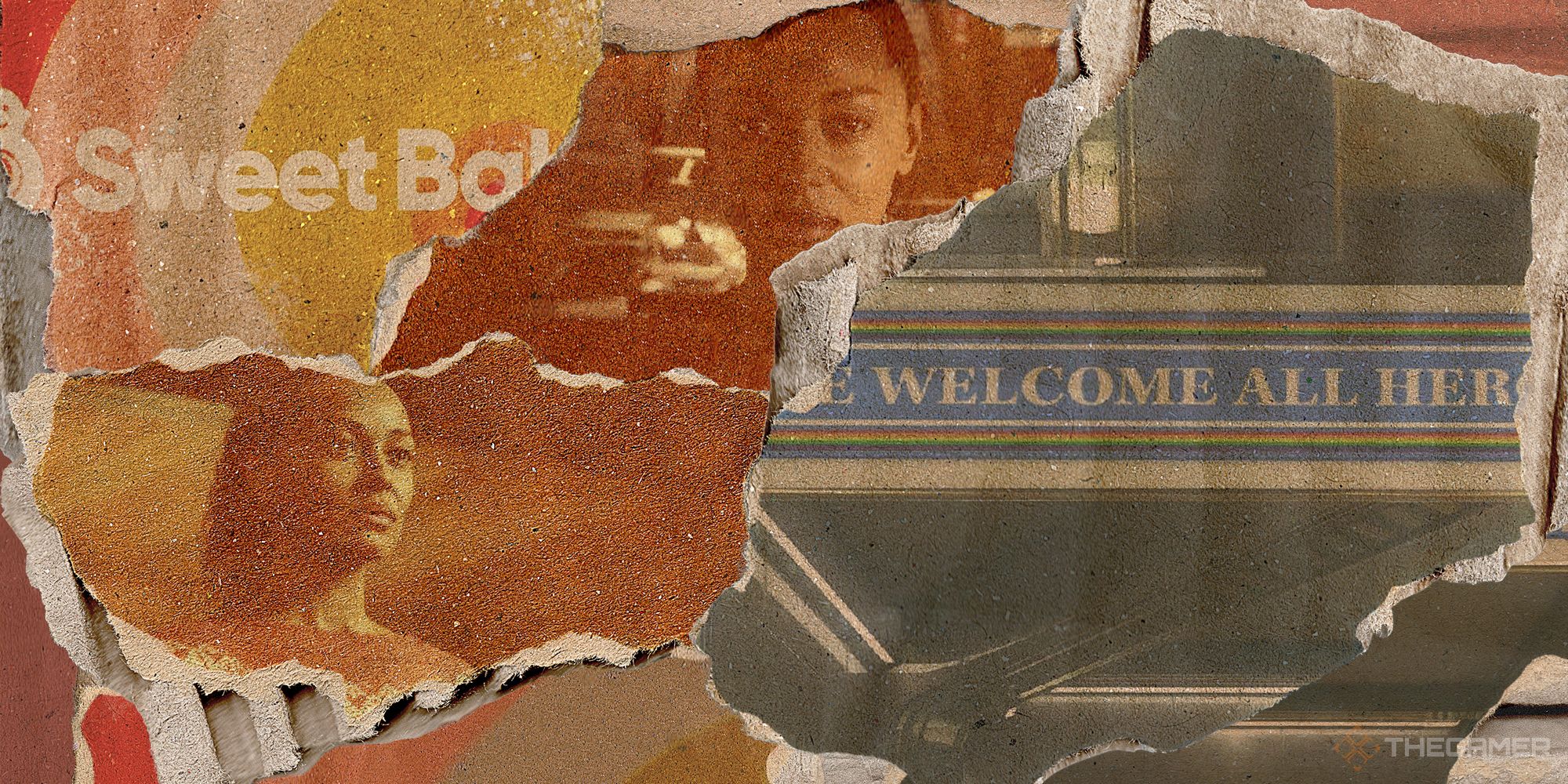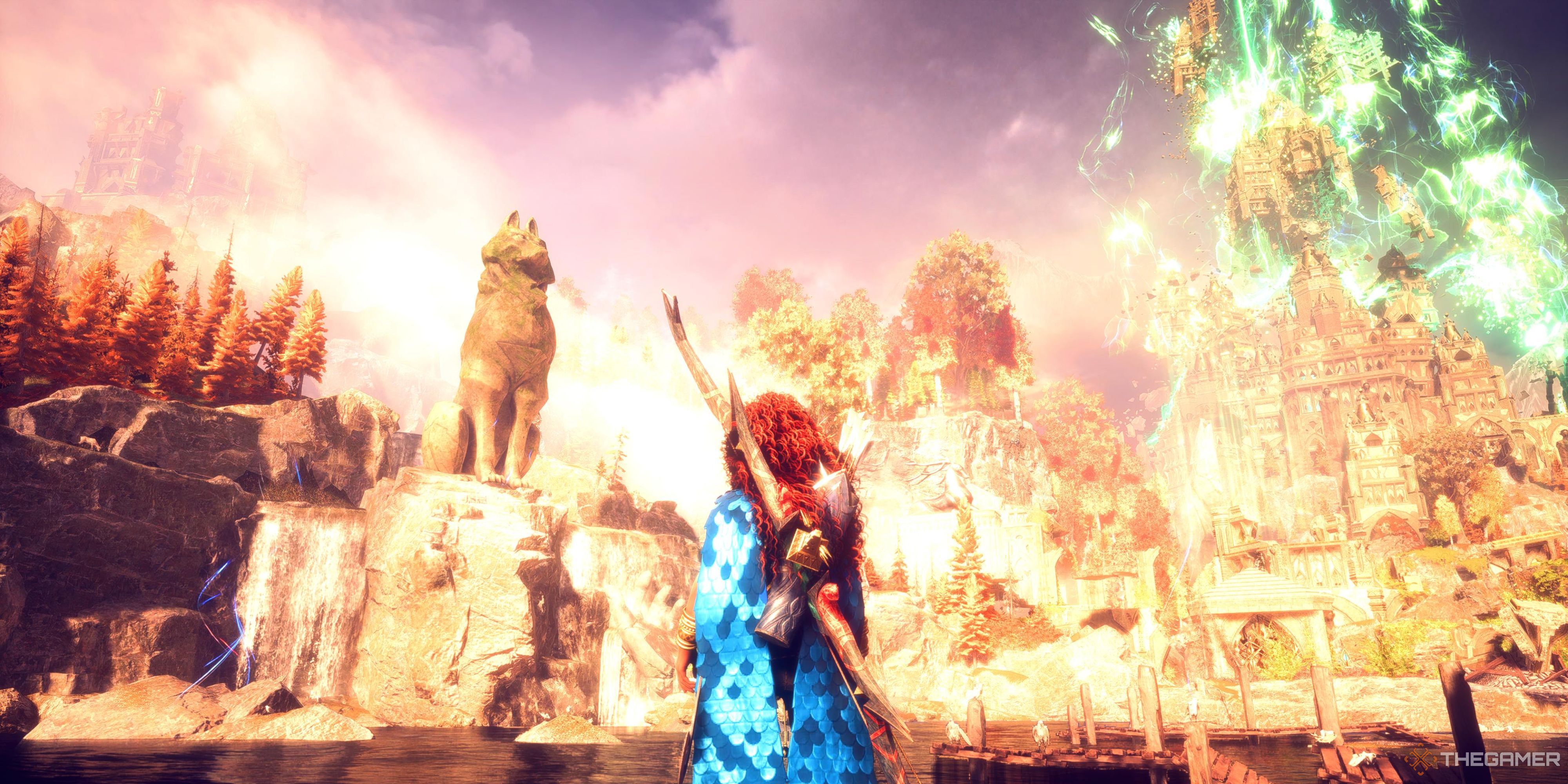
Sweet Baby Inc. Haven’t Stopped Working Admist Online Abuse
Grant Roberts has been in the gaming industry for 25 years and believes it’s now in a worse state than it’s ever been. With a seemingly endless stream of mass layoffs and studio closures, it’s hard to disagree.
But job stability isn’t the only force at play here. Grant Roberts recently spent one and a half years working as a narrative director at Sweet Baby Inc., a consultancy company that, like all consultancy studios in games, largely went under the radar until earlier this year. Then, all of a sudden, it was everywhere.
A targeted hate campaign against the company, which often leads to harassment and abuse of its employees, paints Sweet Baby Inc. out to be many things it’s not. For one thing, it paints them as powerful, when consultants have very little sway on what a final game looks like. The tamer detractors target the studio for offering consultancy on diversity, equity, and inclusion (DEI) to a number of triple-A projects, while the worst are accusing the team of blackmailing game developers, forcing them to make games ‘woke’.

Related
Going After Alan Wake 2 For Being “Woke” Really Gives The Game Away
If you believe DEI is ruining games, you probably shouldn’t use objectively great games as your example.
Throughout 2024, it has culminated in what many are referring to as GamerGate 2.0. But at the heart of this are people like Grant Roberts, who until recently, was one of Sweet Baby’s 16 employees. He’s just been getting on with his work, even though few seem to realise what that work actually involves.
“What Sweet Baby has not done is show up at game studios and say, ‘Hey, we’re making your game woke now, or else,’” says Roberts, speaking to me at the Game Industry Conference in Poland. “Sweet Baby is a work-for-hire company, like a lot of these other consultant companies are. People hire us to do the work. […] Studios come to Sweet Baby because they want help, because they want to make their game better.”
In October 2023, the discourse around Sweet Baby kicked off on message boards. On these message boards, their work on games was referred to as “possibly one of the biggest scandals in gaming history”, as documented by Kotaku. The post specifically referenced Sweet Baby’s work on Alan Wake 2 and Marvel’s Spider-Man 2, arguing that the company forced studios to add more diversity to both games. In February 2024, with Suicide Squad: Kill The Justice League, it went mainstream, at least in hardcore gaming spheres.
“One of the most frustrating parts about the events over the last year and a half is just this incredible level of misunderstanding, both deliberate and assisted. It’s not how it works. That’s not what we do,” says Roberts. “We didn’t put pride flags in Spider-Man 2. This has all been on the internet. It’s all out there. We didn’t make Saga Black in Alan Wake 2. That’s not what happens.”
Alan Wake 2 game director Kyle Rowley has backed this up, saying there’s no truth to the theory that Saga Anderson was designed as a Black woman at Sweet Baby Inc.’s behest.
On the surface, these seem like odd games to kick off such a controversy, since both were well-received by fans and critics alike. But Roberts feels it’s their proximity that drew attention to Sweet Baby, as they launched within days of each other and both became straw men for a hate campaign.
“It fits into this sentiment that it can’t possibly be true that these companies want to make their games more inclusive and more authentic, and has to be somebody forcing that on them,” he says.
One of the most frustrating aspects for Roberts is that this bad-faith hate campaign ignores other aspects of the company’s work. “Sweet Baby is a narrative development company that is hired by other companies. And sometimes that’s [for] authenticity and diversity, but it’s primarily a narrative company,” he explains. “One of the more frustrating things about this whole thing is like, ‘This is what Sweet Baby does. They’re the DEI company.’”
So, I asked Roberts what a narrative consultant actually does.
How Sweet Baby Inc. Works With Game Studios
Miles Morales and Peter Parker perched together in Marvel’s Spider-Man 2
“The way I think of it is like two axes,” he explains. “There’s the axis of the scope of what we do on a project, ranging from doing the entire narrative of the game, world-building and writing and narrative direction, all the way down to reading somebody’s design doc, or checking out a character bio. And yes, sometimes that takes the form of authenticity, sensitivity, and diversity and things like that.
“Then the other side of it is the studios that we work with, ranging from enormous things like Insomniac, Sony and Microsoft and those big companies, all the way down to small indies and other passion projects, or student projects,” he explains. “What I got to do there was work on a bunch of those different projects, and do a lot of different scales of things, from writing cinematic scripts on something huge to just, like, reading somebody’s design doc. There’s all kinds of things that we do, but all of it is because a company came to Sweet Baby and said, ‘Please help us be the best version of what we can be.’”
This is a far cry from the picture being painted by its detractors, who reduce the work to adding queer characters and Pride flags to games. Often, Sweet Baby is attached to projects it had nothing to do with, as the studio’s name has become shorthand for games that include diverse casts or progressive politics.
“One of the most frustrating parts about the events over the last year and a half is just this incredible level of misunderstanding”
“You see the YouTube thumbnails, and there’s a little Sweet Baby logo on it,” he says. “Like, I would have loved to work on Dragon Age: The Veilguard. That series is great. But no, we did not work on Dragon Age. The list of the games that we did not work on is pretty big, but you wouldn’t know it by looking at YouTube thumbnails and posts by people on Twitter.”
Misinformation online is nothing new, particularly on YouTube and Twitter. With this in mind, Roberts feels like a campaign like the one we’re seeing now was inevitable.
“I think if it wasn’t Sweet Baby that was the target of all this, then it probably would have been someone else,” he explains. “And it has been other people, who are not connected to Sweet Baby or not doing the same kind of work. Because I think that it’s part of this larger culture war that’s happened, that’s never really gone away in the West, and it’s in the East in some respects as well.
“Back then, ten years ago, people were making their name based on being attached to [GamerGate]. So that part of it hasn’t changed. But it certainly does seem to be a lot easier now.”
Many are making careers off the back of hate against Sweet Baby. It would be a lot for anyone to handle, let alone a company of just 16 employees. But Roberts says they’ve responded by just getting back to work.
“There’s not much you can do about it publicly that won’t just draw the mob onto you again or draw the mob over here to somebody else,” he says. “Like, yes, it is horrible that people are sending us death threats and trying to dox us, and sending literal bomb threats to the building that the studio is in, but we’ve got work to do.”
Roberts says that it hasn’t stopped Sweet Baby from getting work either. “When it really reached its apex, when Elon Musk was tweeting about us, companies were reaching out to us privately and showing support. Nobody was pulling that support.
“I think the reason why we’ve had more support privately than publicly is because when people do speak up publicly […] we knew that they were opening themselves up to attacks.”

Related
Diversity Is Not Your Enemy In A Live-Service World
Studios aren’t forced to add diversity, they’re forced to add battle passes and endless grind, leading to worse games and cheap demographic appeal
However, Roberts would like to see more companies take a stand and speak out against the abuse his coworkers received. “What I personally would have liked to see is more institutions saying that this is wrong, that this is happening, that people are being targeted in this way. That Sweet Baby isn’t just a DEI company or a company that makes things more woke – not that there’s anything wrong with that in the first place, but even if there was, that’s not everything that we do. It would have been nice to have seen more people and institutions learn the lessons of ten years ago.”
Despite this, Sweet Baby isn’t going anywhere. While Roberts left Sweet Baby earlier this month, he has no intention of leaving the industry. In fact, he’s now creative director at the newly founded Longdue, which you may remember as one of the four studios working on a spiritual successor to Disco Elysium (and one of three that announced theirs on the same day).
“If it wasn’t Sweet Baby that was the target of all this, then it probably would have been someone else.”
“I would go back to work at Sweet Baby in a heartbeat. I would hire Sweet Baby in a heartbeat,” he says. “Even though I’ve been doing this for a quarter of a century, I still learned an incredible amount from the people there, both about game development and otherwise […] Even [with] the experiences of the last year and a half, which have been mostly bad, I’ve learned a lot during that as well.”
“The world is the way it is now. These games are more inclusive for people. Games are more authentic, and it doesn’t matter whether you think that’s true or not, it’s happening,” he reflects. “And so, no matter what these people do, they’re not gonna stop us. They’re not going to stop the way that the world is now.”

Next
Dragon Age: The Veilguard Has Gaming’s True First Transgender Character Creator
Being trans leads to unique dialogue options in Dragon Age: The Veilguard.


